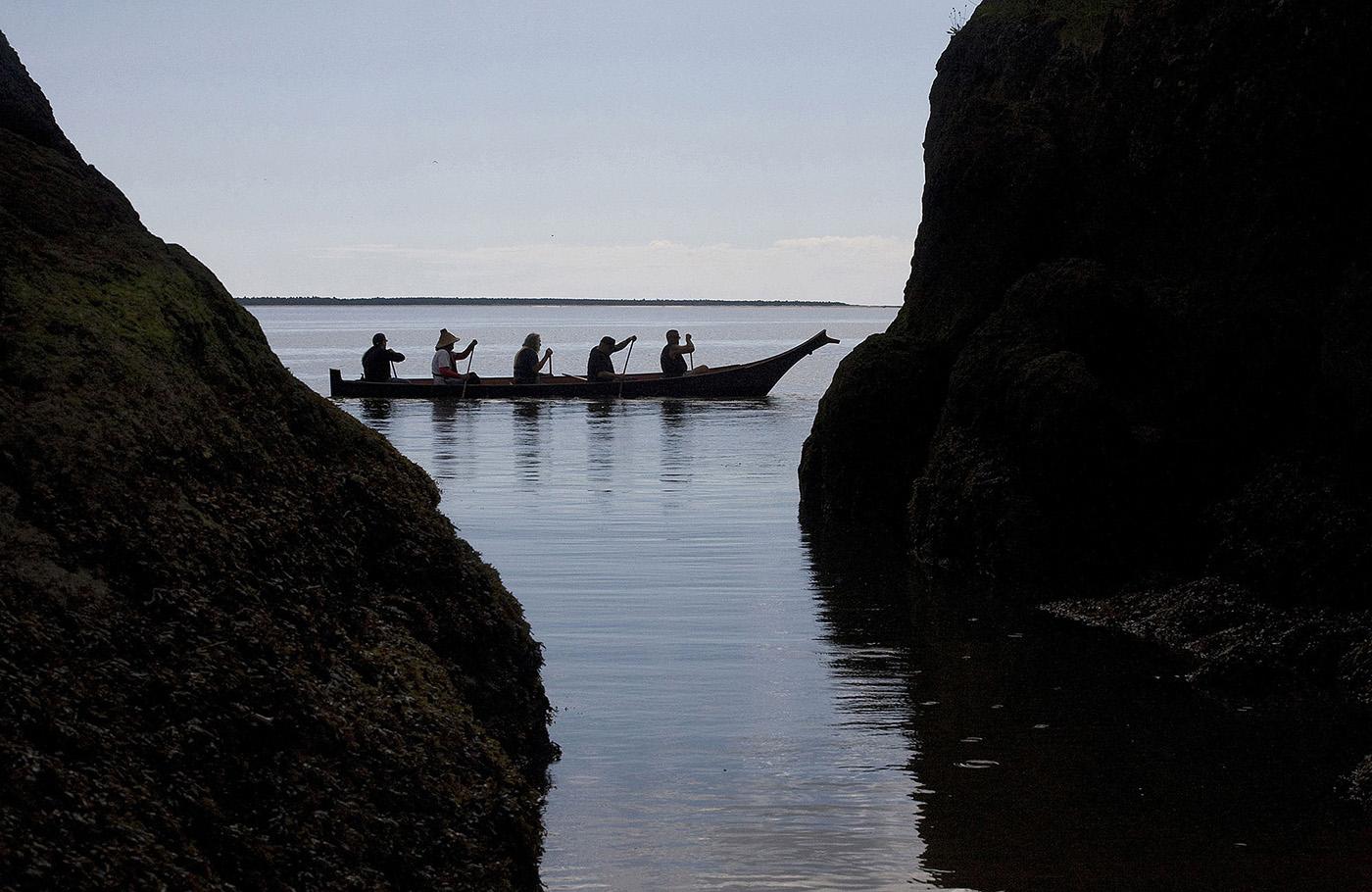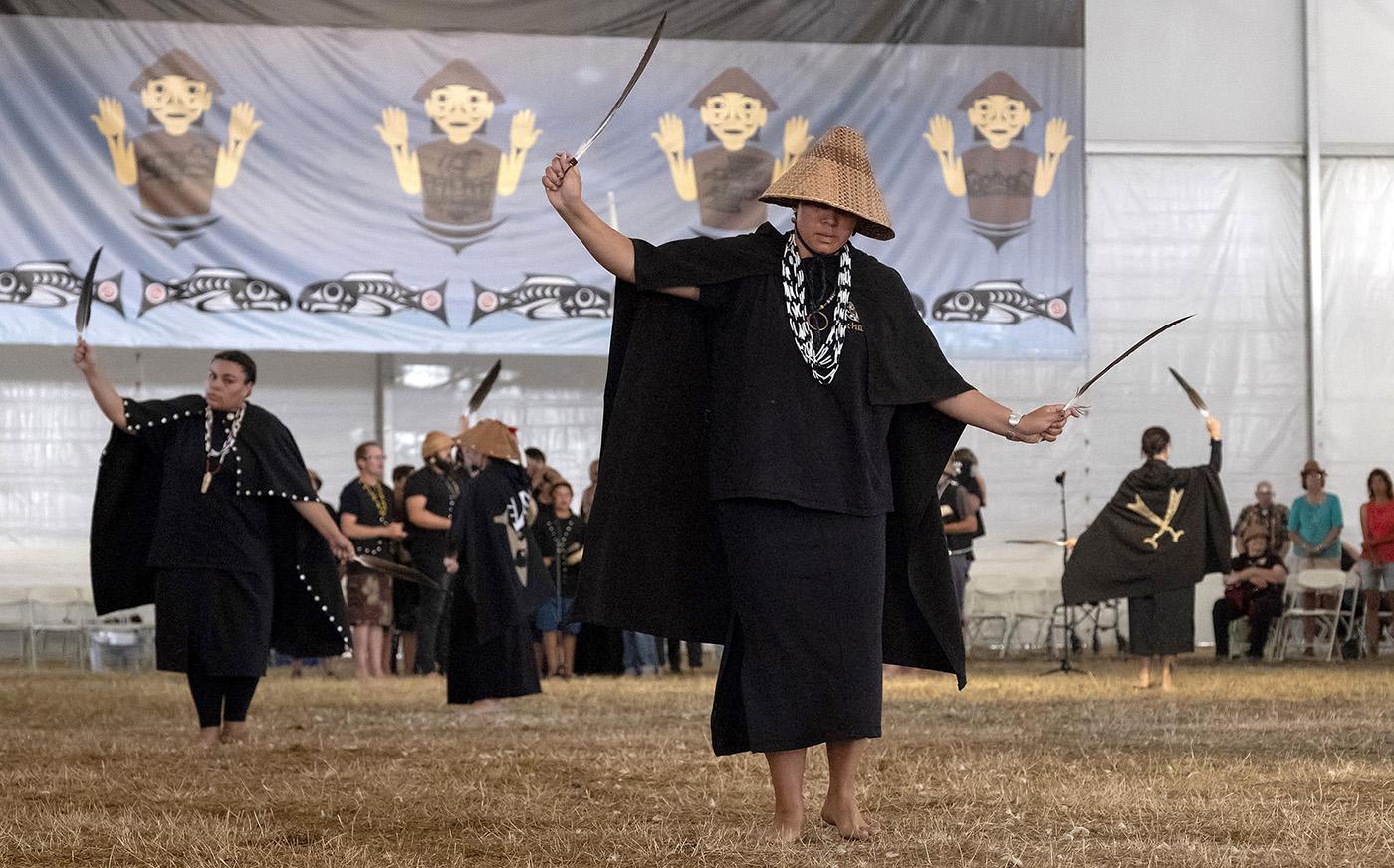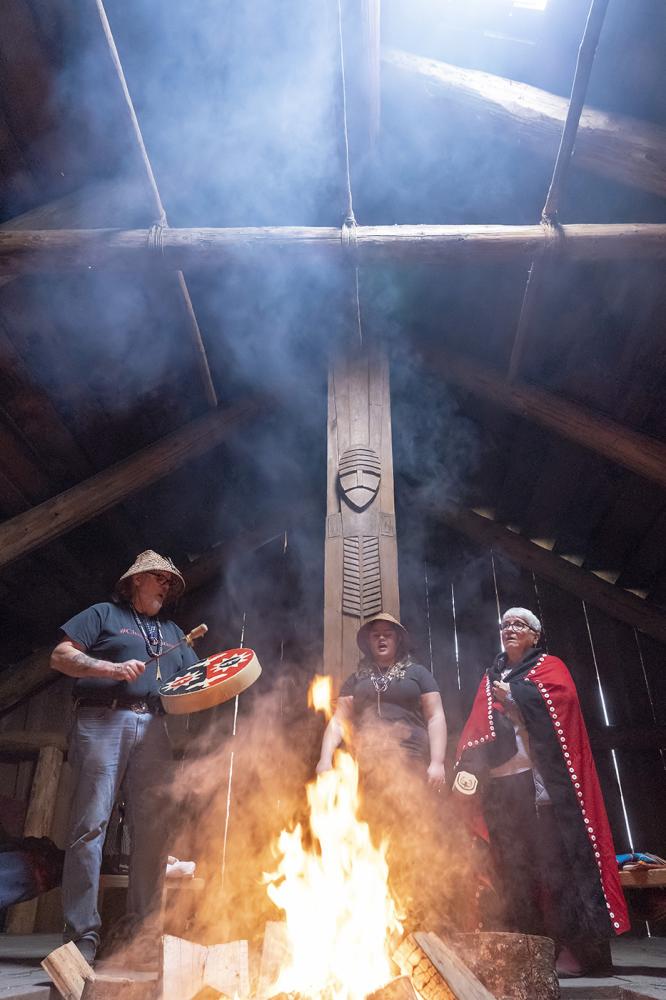Depicting the Chinook Indian Nation, a community that is founded on the strength of its ancestors, and resolved to continue its legacy for the generations that follow.
The southwest Washington tribe’s ancestral lands sit at the mouth of the Columbia River. Its people fell victim to the Indian Termination Policies of the 1950s, when the stroke of a pen eliminated federal recognition for more than 100 Indian nations. After decades of hard work, the Chinook Indian Nation obtained federal recognition at the end of the Clinton Administration in 2001. However, celebration turned into heartbreak when the Bush Administration rescinded this recognition without any reason.
Without federal recognition, the Chinook Indian Nation was essentially declared nonexistent in the eyes of the government. Since 2001, not a single hearing to reinstate recognition has been scheduled, Congress has not granted the Bureau of Indian Affairs (BIA) authority to reverse prior reversals and restore recognition, and efforts made by the Chinook Nation have been largely ignored.
Formal recognition is essential for economic development, the establishment of a land base, preservation of culture, reinstatement of fishing and hunting rights, and the ability to repatriate ancestors’ bones and sacred items.
Most recently, when the the government announced an extraordinary $43 Billion COVID stimulus package to improve healthcare, education, and provide broadband internet to tribal communities with the highest needs, the Chinook Indian Nation received no money, as the stimulus bill only applied to recognized tribes.
However, the Chinook are resilient, and the fight for recognition continues.
“It is an obligation to our ancestors- the hell they went through to get us here- and to our children. To not do anything is to dishonor my people,” said Chairman, Tony Johnson.
Amiran White
Photographer
nsayka ilii- our land
Public Project
nsayka ilii- our land
3,114




















